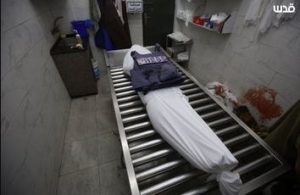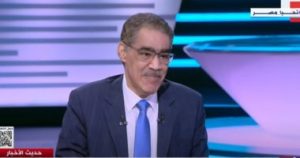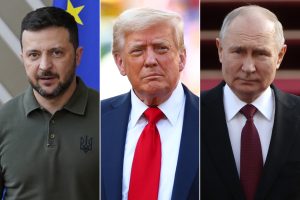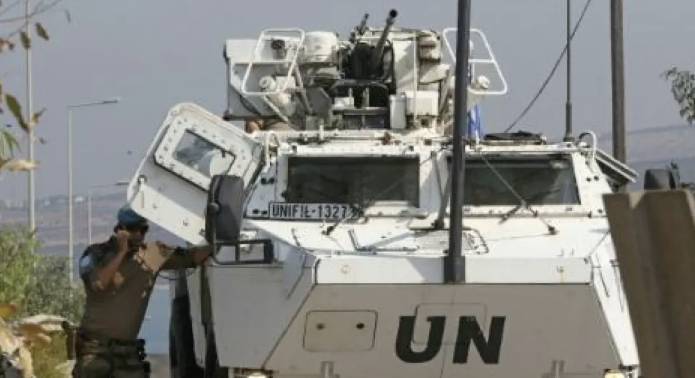Beirut (Lebanon) (AFP) – The United Nations Interim Force in Lebanon (UNIFIL) announced on Wednesday that Israeli drones dropped four bombs near its personnel in an attack described as “one of the most serious” against its forces since the ceasefire in November.
The force said the Israeli army dropped “four bombs near UNIFIL peacekeepers who were working to remove roadblocks obstructing access to a UN site” in southern Lebanon near the Israeli border on Tuesday morning.
It added that “one bomb fell about 20 meters away while three fell approximately 100 meters from UN personnel and vehicles.”
It stressed that “this is among the most serious attacks on UNIFIL personnel and assets since the ceasefire agreement in November,” which ended more than a year of confrontations between Israel and Hezbollah.
France, for its part, called for “ensuring the protection of peacekeepers and the security of UN personnel, equipment, and premises,” in a Foreign Ministry statement commenting on the Israeli attack.
The UN force said in its statement that the Israeli army was aware in advance of its plans to carry out roadworks “near the Blue Line,” which serves as the border line with Israel, southeast of the village of Marwahin.
It confirmed that endangering the lives of peacekeepers constitutes a violation of the UN Security Council resolution issued in 2006, which formed the basis for last year’s ceasefire.
It added that “any steps that endanger UN peacekeepers and their assets, and interfere with their assigned tasks, are unacceptable and constitute a serious violation of Resolution 1701 and international law.”
Qatar condemned Israel’s targeting of UNIFIL, considering it “a serious violation of international humanitarian law,” affirming its “full solidarity with the sister Lebanese Republic in the measures it takes to preserve its security and stability.”
Last week, the UN Security Council voted to extend UNIFIL’s mandate for the last time until the end of next year, preparing for its withdrawal in 2027 after nearly fifty years of deployment in southern Lebanon.
Israel’s ambassador to the UN, Danny Danon, welcomed the decision, accusing UNIFIL of failing to prevent Hezbollah from “controlling the area.”
This comes as Lebanese authorities committed to disarm Hezbollah before the end of the year as part of implementing the ceasefire between Israel and Hezbollah reached in November, amid US pressure and fears that Israel might launch a new military campaign if Hezbollah’s Iranian-backed weapons are not disarmed.
The Lebanese government is scheduled to hold a cabinet session on Friday to “present and discuss the arms control plan” assigned to the Lebanese army in August.
The ceasefire agreement, brokered by the US, stipulated Hezbollah’s withdrawal from the border, the monopoly of weapons by legitimate Lebanese forces, and Israel’s withdrawal from points it penetrated during the conflict.
However, Israel has maintained forces in five strategic heights and continues to carry out almost daily strikes in various parts of Lebanon, claiming to target Hezbollah weapons depots and leaders.
One person was killed Wednesday in an Israeli airstrike on the town of Yater in southern Lebanon, according to the Ministry of Health.













Recommended for you
Exhibition City Completes About 80% of Preparations for the Damascus International Fair Launch
Talib Al-Rifai Chronicles Kuwaiti Art Heritage in "Doukhi.. Tasaseem Al-Saba"
Unified Admission Applications Start Tuesday with 640 Students to be Accepted in Medicine
Egypt Post: We Have Over 10 Million Customers in Savings Accounts and Offer Daily, Monthly, and Annual Returns
Al-Jaghbeer: The Industrial Sector Leads Economic Growth
His Highness Sheikh Isa bin Salman bin Hamad Al Khalifa Receives the United States Ambassador to the Kingdom of Bahrain